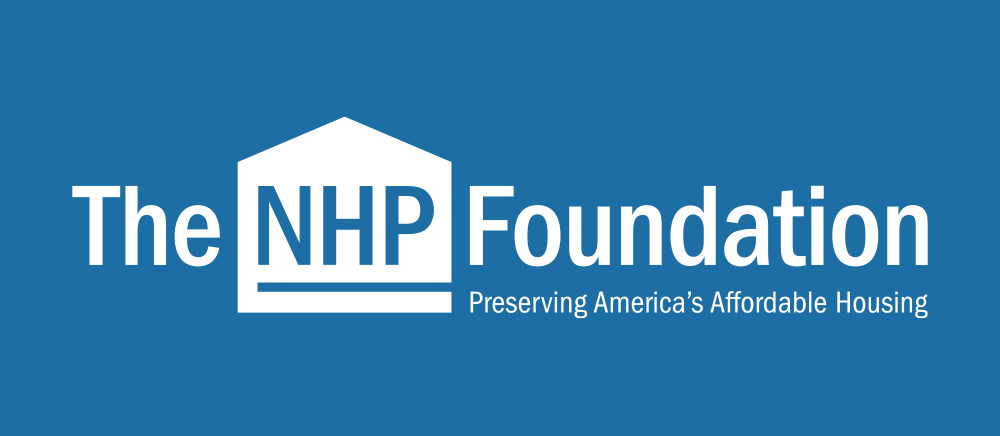
The NHPF Language Assistance Plan
The NHP Foundation is committed to taking reasonable steps to ensure that persons with Limited English Proficiency (LEP) have meaningful access and an equal opportunity to participate in our services, activities, programs, and other benefits. We ensure meaningful communication with LEP applicants and residents and their authorized representatives. Interpreters, translators, and other aids needed to comply with this policy shall be provided free of charge to the person being served, and residents and their families will be informed of the availability of such assistance. Language assistance will be provided through use of a contracted telephonic interpretation service, competent bilingual staff, staff interpreters, or formal arrangements with local organizations providing interpretation or translation services or technology as requested.
Needs Assessment
The NHP Foundation (NHPF) has service area consisting of fourteen states (Colorado, Connecticut, Florida, Illinois, Kentucky, Maryland, Massachusetts, Michigan, Missouri, New Jersey, New York, North Carolina, Texas and Virgina) and the District of Columbia. With regard to assisting program participants who may have limited English proficiency, NHPF has completed a Limited English Proficiency (LEP) assessment utilizing Census Bureau and American Community Survey data to identify LEP populations. LEP populations include:
Service Area
- Across NHPF’s Service Area for the Capital Magnet Fund, 24.4% of the population age five and older speak a language other than English at home, including 9.3%—representing 13,717,861 persons—who speak English less than “very well” (LEP), according to 2022 American Community Survey 5-year Estimates Data Profiles (DP02, Selected Social Characteristics).
- LEP households comprising the 9.3% who speak English less than “very well” include:
- Spanish 6.1% (8,955,580 persons)
- Other Indo-European Languages, 1.55% (2,273,411 persons)
- Asian and Pacific Islander Languages, 1.66% (2,444,339 persons); and
- Other Languages, 0.03% (44,538 persons).
Language Services
NHPF takes the following proactive measures to ensure meaningful access for LEP persons:
- Staff have the Census Bureau “I Speak” card with which to identify the primary language of the LEP person. A sample of the card provided is available at www.fns.usda.gov/civil-rights/ispeak
- NHPF staff includes persons who can provide verbal or written translation of vital documents, if requested by LEP persons.
- NHPF will provide translation services during program meetings, on-site visits and loan closings, if requested to do so by LEP persons.
- NHPF staff has access to fee-based interpretation and translation services to assist with LEP populations and / or provide translated vital documents on an as-needed basis. A document will be considered vital if it contains information that is critical for obtaining services, is a legally binding document, or is required by law. NHPF will provide a translation of vital documents, free of charge, to LEP individuals.
- NHPF will source translators and interpreters, as needed, through the American Translators Association (ATA). Translators work with the written word, converting text from a source language into a target language. Interpreters work with the spoken word, converting speech from a source language into a target language.
- The ATA maintains a directory where users can search for a translator or interpreter by language pair for seventeen different languages including Arabic, Chinese, Croatian, Danish, Dutch, French, German, Hungarian, Italian, Japanese, Korean, Polish, Portuguese, Russian, Spanish, Swedish, and Ukrainian. Users can also conduct an advanced search for specialty field, geographical location, and other parameters. ATA’s Language Services Directory includes more than 7,000 individuals and companies offering professional translation and interpreting services.
Notices
- NHPF posts notices to staff, borrowers and program participants of availability of translation services for LEP persons of the threshold population(s) in the language(s) spoken (Spanish).
- NHPF posts required notice(s) describing the Federal laws prohibiting job discrimination based on race, color, sex (including pregnancy and related conditions, sexual orientation, or gender identity), national origin, religion, age (40 and older), equal pay, disability or genetic information (including family medical history or genetic tests or services), and retaliation for filing a charge, reasonably opposing discrimination, or participating in a discrimination lawsuit, investigation, or proceeding on its website.
- NHPF posts the required Title VI non-discrimination policy on its website indicating that CIP does not discriminate on the basis of race, color, national origin, sex, age or disability and provides information on how to make a complaint of discrimination. The information can be found at the following link: nhpfoundation.org/title-vi-and-section-504-compliance
- For all LEP populations identified above, NHPF has Equal Opportunity brochures and non-discrimination posters in the applicable languages (Spanish). Also available at www.eeoc.gov/poster
Training
- NHPF trains staff to properly respond to individuals with limited English proficiency who contact the organization.
Evaluation
- NHPF monitors and updates the Language Access Plan annually to evaluate its effectiveness in serving LEP individuals and modify it accordingly. The evaluation assesses demand for services delivered to LEP individuals, documents LAP training received by staff, and evaluates complaints, if any, regarding assistance provided.


